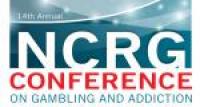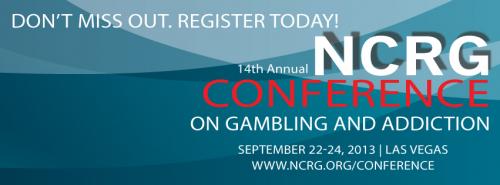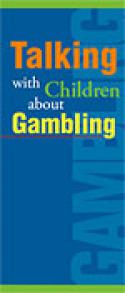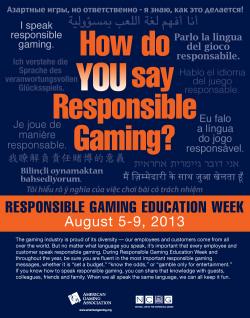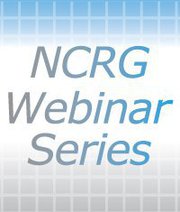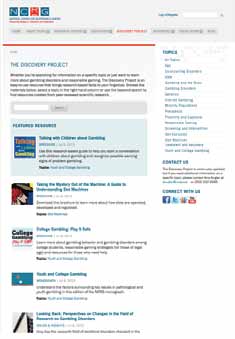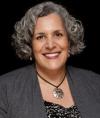This weekend, the14th annual NCRG Conference on Gambling and Addictionwill kick off at The Sands Expo and Convention Center at the Venetian Las Vegas. The 2013 Conference will offer attendees more than 14 sessions in total and the chance to earn up to 11continuing education (CE) hours.
But did you know that the NCRG is offering three pre-conference workshops and a chance to earn up to two additional CE hours before the conference opens Sunday afternoon? This year, the NCRG is offeringthree pre-conference workshopson Sunday, Sept. 22 from 9:30 – 11:30 a.m., and spots are still available! The NCRG pre-conference workshops include:
Using the DSM-5 in Clinical Practice (2 CE hours)
Leader: Jon Grant, J.D., M.D., M.P.H., The University of Chicago
Are you prepared for the changes in the DSM-5? Revisions in the diagnostic codes for gambling and substance use disordersmean that health care providers specializing in addiction need to consider the implications for their clinical practice. Dr. Grant, co-author of the supplemental guidebook forthe DSM-5, will lead an exploration of the clinical issues posed by these changes.(This pre-conference workshop requires an additional fee.)
New Gambling Credential for Counselors through NAADAC (2 CE hours)
Leader: Shirley Beckett Mikell, NCAC II, CAC II, SAP, NAADAC, the Association for Addiction Professionals
NAADAC, the Association for Addiction Professionals, and the NCRG have partnered to develop a new, evidence-based credential for counselors interested in specializing in gambling disorders. Long-time NAADAC education expert and trainer Ms. Mikell will lead workshop participants in a review of the new credential, including the exam questions as well as educational and supervision requirements.
Trends in Research Methodology: A Workshop for Early Stage Investigators
Leaders: Bethany Bray, Ph.D., Penn State University; Clayton Neighbors, Ph.D., University of Houston
In order to produce the most innovative research, scientists need to draw upon collaborations and suggestions from other researchers in the field. Drs. Bray and Neighbors will examine how to efficiently assess an analytic method’s potential for your research. This session will cover how to evaluate what research questions can be addressed by a specific approach and ways to incorporate innovative methods in your grant proposals. Drs. Bray and Neighbors will specifically examine techniques and research questions that are covered by latent class analysis (LCA), causal analysis and a new methodology for analyzing intensive longitudinal data.
Registrationis required for all of the pre-conference workshops, and you can register on-site for the NAADAC and Research Methodology workshops!
If you can’t attend this year’s NCRG Conference, make sure you subscribe toGambling Disorders 360°for recaps from conferences session and interviews with leading experts. You can also follow the action onTwitter(#NCRGConference) orFacebook!
NCRG staffConference on Gambling and AddictionDSM-5Early Stage InvestigatorsNAADACNCRG ConferencePre-Conference Workshops






